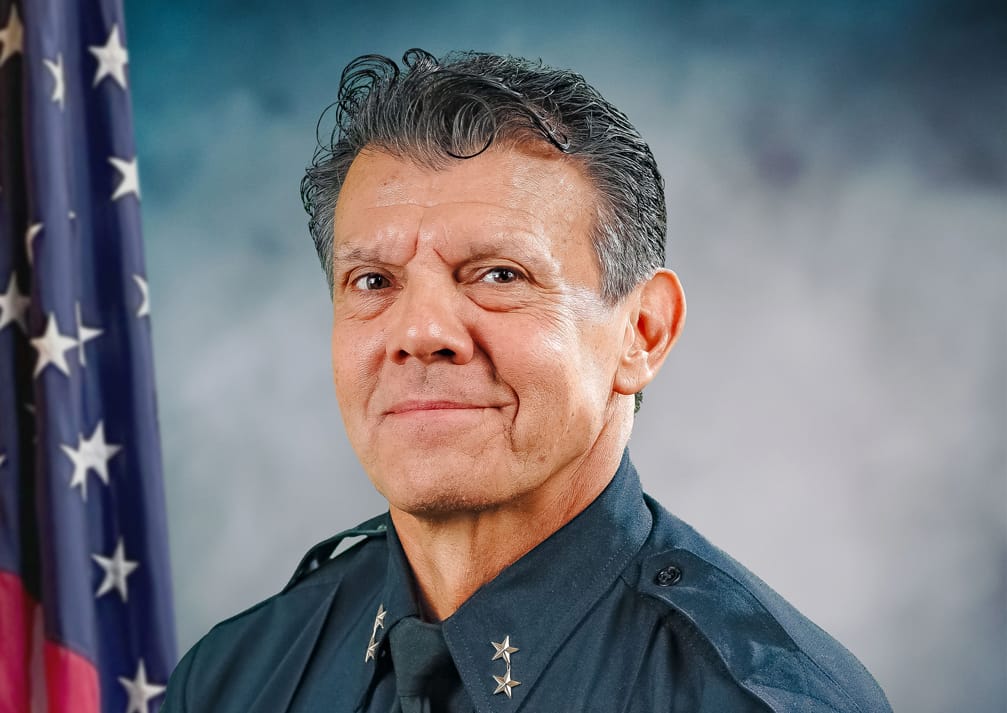[25:56]
STREAMING DESCRIPTION: At least four people died in hotels in Vallejo, Calif., under Project RoomKey, a statewide initiative that put people experiencing homelessness up in hotel rooms to keep them safe during the COVID-19 pandemic. Listen to the Vallejo Sun’s ongoing investigation into the program and the death of 63-year-old Cherie Nicoletta. You can view photos and documents obtained in our investigation at VallejoSun.com.
SCRIPT:
CHERIE 00:00: ‘Lissa, honey, call me. I looked into the homeschooling……”
[fade under]
[Rodeway noise rise up]
On July 13th, 20-20… Cherie [Sher-ree] Nicoletta [obit] called her daughter from the Rodeway Inn… a two-story motel right off of Interstate 80 in Vallejo, California. She was staying there as a guest under Project RoomKey… a statewide initiative that opened up vacant hotel rooms to people experiencing homelessness during the COVID-19 pandemic.
That call went to voicemail…
CHERIE 00:50: “Right now, I'm in a lockdown here at the hotel. The one they brought us to, which is the biggest fucking dive I’ve ever been in, as usual”
Cherie was a former career flight attendant whose mental health issues had left her living unsheltered for most of the last two decades.
[Hampton road ambi]
She was first placed in a room at the Hampton Inn on Fairgrounds Drive in Vallejo… in April 2020. Three months later… residents at the Hampton were moved to the Rodeway… where Nicoletta took issue with the conditions early on.
CHERIE [1:04]: I get here both my lamps don't work, no light in the bathroom. No hot water, paint on the floor. But they’re being really strict. They want us to stay in place, but, fuck, man, nothing works in here.
Besides the lamps, Nicoletta said her TV didn’t work… and it appeared there was only one problem after another.
CHERIE: So yeah, we're gonna have a real big problem here. They’re probably gonna have to move us all.
The city would move the Roomkey residents out of the Rodeway Inn… eventually. But at least four people… including Nicoletta, herself… would die in hotels in Vallejo under contract with the city. Paid for with local, state and federal funds… the initiative was called Project RoomKey… which Governor Gavin Newsom launched in the early days of the pandemic.
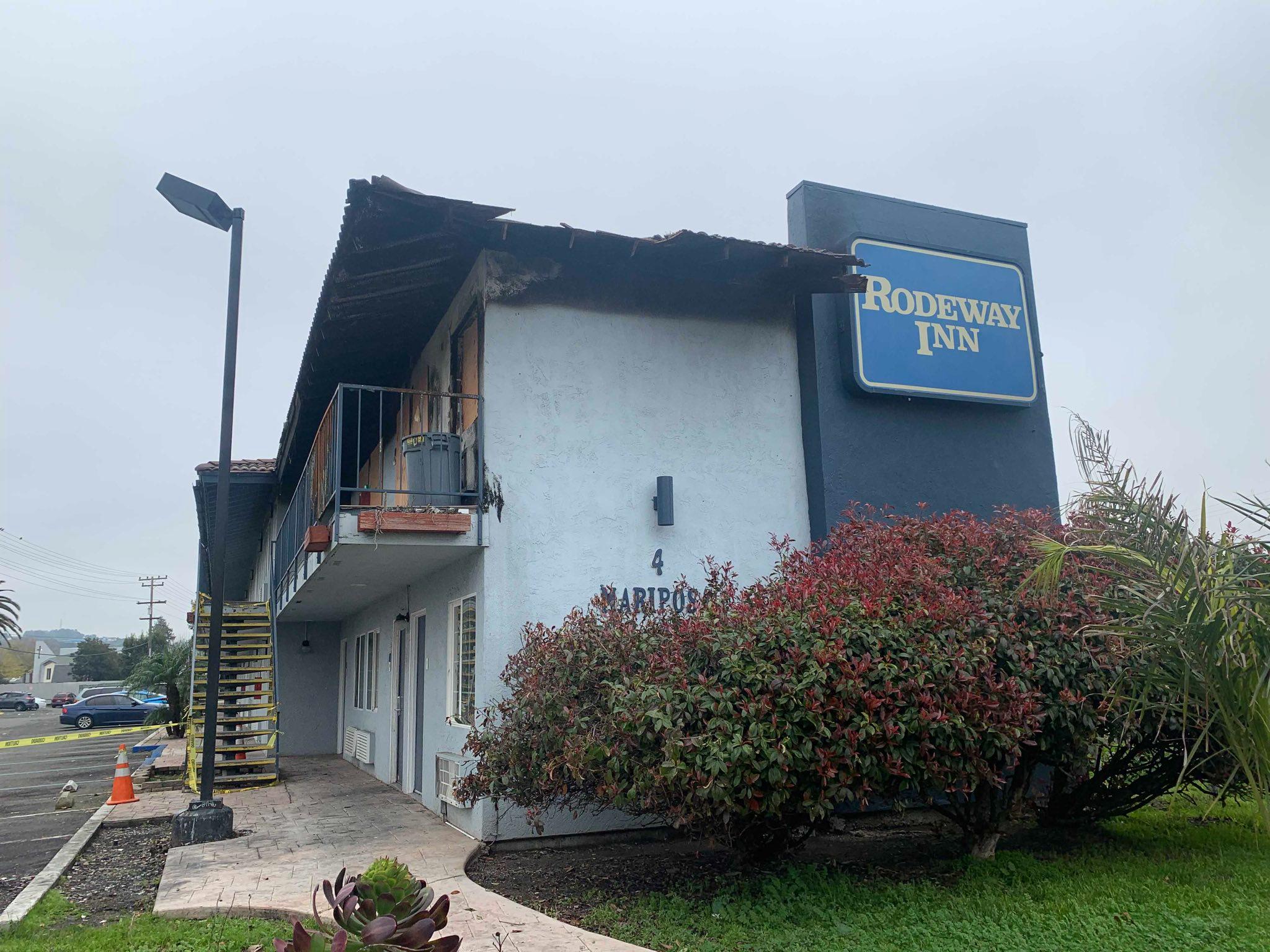
While it offered people a room to socially distance… the program… as it was executed in Vallejo… provided residents with little to none of the agreed upon services… to help them transition into more permanent housing… and ..in fact… residents and the families of people who died have described filthy conditions and neglect by program staff.
ALYSSA [13:25]: She just told me it was awful, that she hated it. She was feeling kind of sad there. She said it was dirty and it was gross.
The city of Vallejo has refused to answer basic questions about what happened in the program… including how many people died.
[2:22]
It did… however… make a series of videos about Project RoomKey… featuring a resident who… months later… would be found dead in his motel room.
[02:27]
BERG:19 [00:08]: I guess I was in the right place at the right time
[pause]
My name is Brian Krans. I’m a reporter with the Vallejo Sun. In this podcast, we’ll take you inside Vallejo’s Project RoomKey and what we’ve been able to confirm through documents… interviews with people who lived in the hotels… and the family members of those who were left to decompose alone in their rooms.
ALYSSA [50:39]: I don't even know what's going on. How long was she dead? That was another thing. I didn't even know how long she'd been dead. You know was she dead all weekend?
[Fade under]
NEWSOM [00:12]: Now we are at a facility here in the Sacramento area that currently has 30 individuals that were out on the streets in encampments that were brought into this hotel slash motel just recently to get them off the street to begin the process of…
[FADE UNDER]
On April 3rd, 2020… a socially distanced California Governor Gavin Newsom announced the creation of an initiative dubbed Project RoomKey…
NEWSOM [1:01] We're very pleased today with the partnership that we have with FEMA, the partnerships, we have counties up and down the state of California, that we've identified roughly 7,000 hotel rooms that are now in our possession, where we have occupancy agreements…
On face value… Project RoomKey’s premise was simple… offer vacant hotel rooms to people experiencing homelessness… because typically their only option for housing was often-crowded shelters. Those congregate settings presented a new problem during a respiratory pandemic… especially for people who are more likely to have underlying conditions… making them more vulnerable to a severe COVID infection.
[4:44]
Here’s Racheal Frederick-Vijay… Vallejo’s Homeless Services Coordinator at the time. According to her Linkedin profile… her accomplishments under Project RoomKey included… streamlining and coordinating services… delivery and partnerships… including case management… non-profit medical services… and agency support.
FREDERICK [00:07] Project RoomKey came about because of the COVID. It just fell in line naturally to what we were always already hoping to do and we were already trying to do within the community. The city of Vallejo was the first to really jump in and say let's do this and started plans for Project RoomKey here in Vallejo. And so we just went with our best thinking at the time and who we thought would support making a strong program.
According to the city’s Project RoomKey webpage… staffing at the two hotels would be a mix of administrative liaisons from the city… Solano County health officials… Touro University nursing staff… case and client services managers from the county… and staff from a private security company.
That webpage states… QUOTE “Staff will monitor participant behavior to ensure that the program rules are followed…. to provide daily health and wellness checks of participants… to deliver food to participant's rooms… and to respond to any participant needs.” END QUOTE
Some of those featured in promotional videos for the city were happy to have the basic comforts that come with a hotel room… including the simplicity of a locking door and a working shower.
17: Sometimes your health don’t let you go as fast as you want to go, you know, so it's good. I like it. It's clean and keep your area and keep your room clean, you know, take showers anytime you want to. It's a plus anybody have any else anything else to say? They don't want nothing.
In Vallejo, one participant was Cherie Nicoletta.
[6:39]
Nicoletta was born in New York state, but she grew up in Green Valley in Solano County here in Northern California. She was known to be fun and gregarious… and was even homecoming queen in high school.
ALYSSA [1:42]: She was outgoing. She… just loved to go to concerts. And she always dressed up… She had really great taste and great style.
That’s Nicoletta’s daughter… Alyssa Borrilez [BOR-i-lez]. She recently told the Sun that her mom was a flight attendant for most of her adult life… which helped her fulfill her dreams of traveling. But Borrilez said her mom struggled with substance abuse… and… despite years of sobriety… she relapsed in her early 40s.
ALYSSA [5:07]: My mom also struggled with bipolar disorder, so I imagine she was like really manic and it was just hard for all of us to deal with.
That led to Nicoletta to retire early on. Her social security checks and meager retirement benefits couldn’t pay for her housing and food. She received housing through Section 8, but that soon fell through.
ALYSSA [5:43]: And she had, I think, like three places, but each one she was evicted from for like manic behavior stuff. And then they pulled her voucher. So she was like, back on the street.
When the pandemic hit and Governor Newsom announced Project RoomKey… Nicoletta was able to secure housing. That made Borrilez feel relieved. Living in Los Angeles with a newborn… Borrilez worried about her mom… who lived in her car and showered at 24-Hour Fitness… which soon closed along with hundreds of other businesses.
ALYSSA [10:54]: What is my mom going to do? Like, she's living in her car. I'm in LA, like, not that my mom ever would really let me do too much anyway.
But Nicoletta accepted help in Project RoomKey… taking one of the roughly 100 rooms at the Hampton Inn that the city of Vallejo rented out for a total of up to 650 thousand dollars a month… which also included the required on-site meals, private security, and medical services… including behavioral health.
ALYSSA [11:30] When she was at the Hampton Inn, she really liked it. Like, she was like, it's great. Like, I have a nice big room. Like, she sent me pictures one time of her room. Like, she just really liked it.
But Nicoletta’s and others’ time at the Hampton would soon come to a close.
[8:27]
SCOTT [ROBBIE] [00:00]: I'm gonna start recording now.
Scott Morris is a staff reporter for the Vallejo Sun and has been reporting on the conditions facing people experiencing homelessness in Vallejo for the past few months.
SCOTT: I was reporting on homeless encampments in Vallejo… I heard rumors about how bad things were in Project RoomKey… including about a death that had never been disclosed by the city. I didn’t know if it was true or not… but I put out a couple public records requests to see if I could find out more information about the deaths. I was shocked when the records showed that not only had two people died.. but both of them hadn’t been found for days after. After we published the first story, another family reached out to us and said, “that’s what happened to my mom.”
Scott soon learned of at least two other deaths in the program.
The first two people known to have died were both staying at the Rodeway Inn… which sits right up against I-80 and Solano Avenue.
[9:36]
[Exterior noises rise up]
The first was on November 20th, 2020… eight months into the pandemic. That’s when staff found 52-year-old Gary Berg Junior dead in his room.
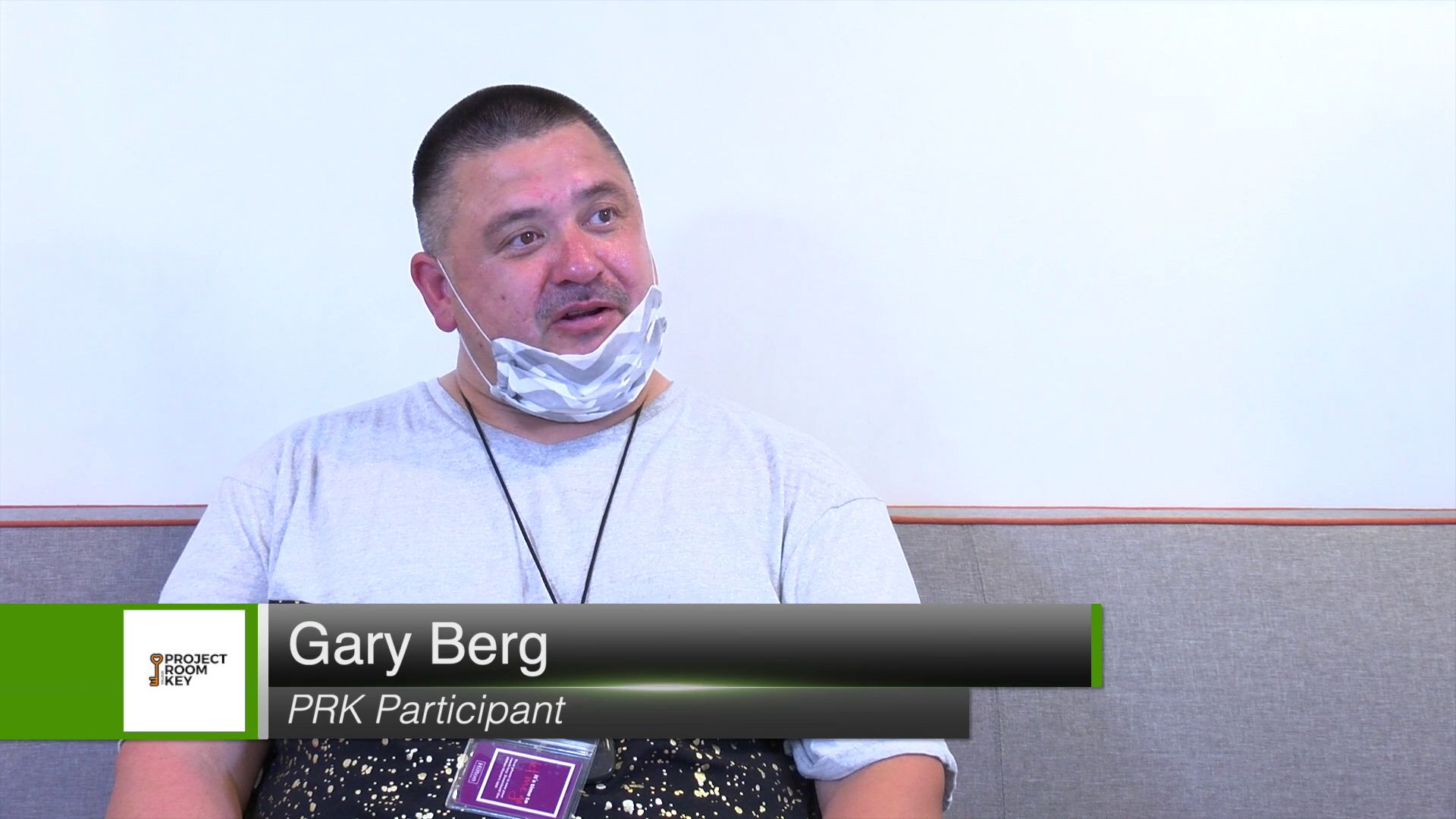
Here’s Berg speaking in the first of a three-part series the city of Vallejo had made about Project RoomKey…
BERG [16]: A friend of mine told me his girlfriend had congestive heart failure and stuff and needed, you know, the they found out from police officer about the program. And I've seen them one day and he told me about it and I called up during the next day and within four or five days that was it.
Crew: Oh, that’s great.
Berg: Yeah, a blessing.
A coroner’s report provided little additional information… noting that Berg had not seen a doctor in the 20 days before he died… and he suffered from heart disease and diabetes. Gary Berg Junior’s cause of death was listed as congestive heart failure… a pre-existing condition he told the video makers he had.
[10:39]
[pause]
Ten days later… 50-year-old Angie Cook was found dead at the Rodeway. The coroner’s investigation notes that she had not been seen for three days before she was found. Cook suffered from hypertension, diabetes and chronic obstructive pulmonary disease… and needed oxygen. Citing those chronic conditions… the coroner determined Angie Cook died of cardiopulmonary arrest. No autopsy was performed.
[11:04]
[PAUSE]
The day after Cook was found, Nicoletta texted her daughter QUOTE “Another one died yesterday. Three in two weeks dead [exclamation point]”
The city… however… has confirmed only two deaths at the motel in November 2020.
ALYSSA [19:48] And then I called her and I was like, What do you mean? And she's like, they're trying to kill us here. They're trying to kill us off one by one.
That’s Alyssa Borrilez [BOR-i-lez] … Cherie Nicoletta’s daughter….
[Cont] And like, it's so hard because like, when my mom was alive, I always was like, so defensive with everything that she's said, I was like, Mom, what are you talking about? Like, who's trying to kill you? You know, you’re being manic, but like, in hindsight, like, was she being crazy?
[11:29]
Weeks after Angie Cook was found dead in November 2020… when the city cut off new enrollees to Project RoomKey… the city hired an inspector from Express Air Testing in Burbank… who went room by room in the Rodeway Inn… documenting mold growth.
Here’s Vallejo Sun reporter Scott Morris again…
SCOTT: I did a public records request and the city gave me 16-hundred photos taken by this inspector. He went room by room documenting mold growth and taking moisture readings. Basically…. every room shows evidence of some kind of mold. Some of the rooms had large black patches of mold growing up walls… on windows… in air conditioners… next to bathtubs… and in the kitchens. Those moisture readings in some rooms were higher than the instrument could even detect.
Mold is really bad for people at higher risk of lung issues… even without COVID.
A 2004 report from the Institute of Medicine states that dampness and the mold growth that can come with it… may cause or worsen upper respiratory tract issues… including coughing and wheezing. They can also exacerbate asthma… and potentially cause severe respiratory infections in some people with severely compromised immune systems.
Some of the Project RoomKey residents… who were admitted to the program because of chronic medical conditions… had just the kinds of health issues that made them more vulnerable to adverse effects from a mold infestation.
[Pause]
In October 2020… the city of Vallejo contracted with a San Jose-based nonprofit called Unity Care… to provide case management services for Roomkey residents.
The contract specifies that Unity Care would take over managing the property in December… but Tatiana Colon Rivera… their director of strategic partnerships… says they didn’t do that… including not having staff present at the hotel on the weekend. She said in a statement to the Vallejo Sun that the city was responsible for managing the property… including janitorial services… through the property owners.
Unity Care says their taking over property management was contingent on the city buying the property… which it did not do… nor is that specified in the contract.
[lil’ pause]
This is not the first time Unity Care has been accused of providing at-risk people with poor living conditions.
[14:22]
The Sun’s Scott Morris has details on that…
SCOTT: In 2019… the state Department of Social Services revoked Unity Care’s licenses to operate SIX foster care facilities in the Bay Area. At two facilities in San Jose… the state said staff were sleeping during their shifts. At one of those facilities… the state reported that there were holes in walls… and the backyard was full of garbage… including a broken microwave. Two of the bedrooms did not have smoke detectors. At another facility in South San Francisco… the state described holes in walls… exposed wires… no toilet paper…. and soiled furniture and floors.
[pause]
In the months following Nicoletta’s death… Unity Care called Project Roomkey QUOTE “remarkably successful.”
Here’s their project manager in Vallejo… Kevin Sharps. He joined Unity Care shortly before it became involved in Project RoomKey. This is from a video touting a vaccination program at the Hampton Inn… Sharps is speaking from inside the hotel’s lobby… and not wearing a face mask…
SHARPS FROM video posted by Unity Care: Project Roomkey started off as a state-funded program to protect homeless citizens from the COVID virus and the program has turned out to be remarkably successful. Not only have we protected people from the COVID virus, but people have been able to find jobs, and reconnect with family and friends and do other healthy and productive things with their time here. So events like today, when Medic Ambulance came in…
[fade]
That video was posted in August 2021. Two months after… Sharps… along with Cherie Nicoletta’s son Robbie… discovered her dead body on the floor of her room at the Hampton Inn.
[Hampton exterior sounds]
Early in 2021… RoomKey residents were moved back to the Hampton Inn… just over Highway 37 from the Six Flags Discovery Kingdom theme park…
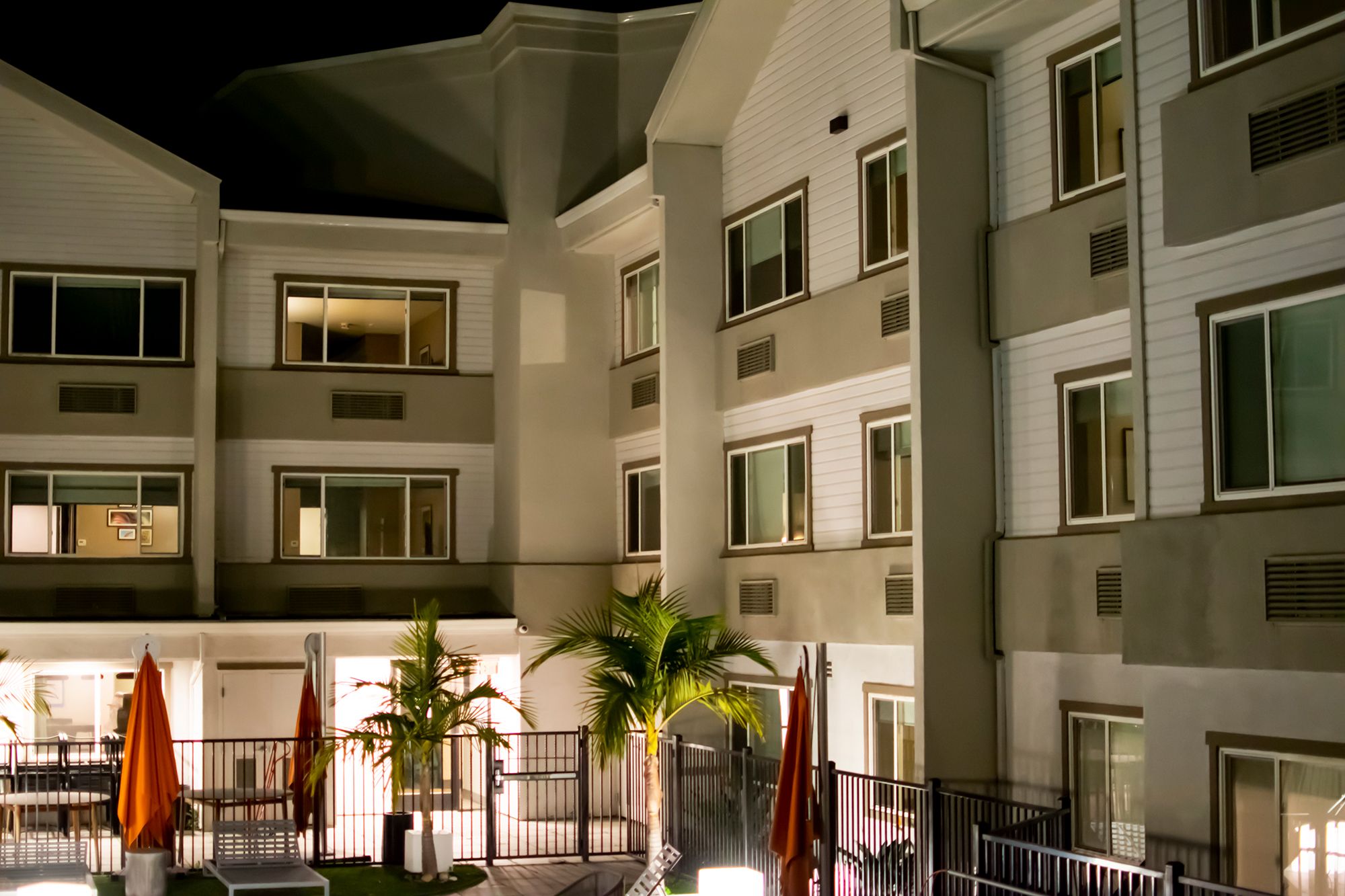
[Screams from rollercoaster]
[15:28]
The Roomkey residents who moved back into the Hampton early last year said that conditions there quickly deteriorated.
Here’s Scott again…
SCOTT: Several people have described trash piled outside of doors… that some people would urinate in the elevators or hallways… and it would never be cleaned. Some people who had pets would allow them to defecate in common spaces in the hotel… and that wouldn’t be cleaned either. The city has said there was so much damage after the program that it anticipated paying about a million dollars to the hotel for repairs.
On May 20th, 2021… 38-year-old Margaret Morgan was found dead in her room. According to the coroner’s report… Morgan was reported missing by her mother… who was living across the hall from her daughter.
Morgan’s mother told investigators that she had last seen her daughter on May 9th… when they spent all day together. While she knew her daughter liked to keep to herself… Morgan’s mother became concerned after not seeing her for so long. She asked hotel staff to check on her. Morgan was found unresponsive on the floor.
The coroner’s investigation couldn’t determine a cause of death for Margaret Morgan… because her body was so badly decomposed after being dead for days.
[pause]
[17:50]
Less than two weeks later… in early June… Cherie Nicoletta’s son, Robbie Perry, made yet another trip down from Vacaville to Vallejo. He’d made the 25 or so mile drive numerous times… often checking in on his beloved mother. This particular drive was to take his mother from the hospital back to her hotel room… after she had tested positive for COVID-19.
[Hampton road noise]
Nicoletta quarantined in her room for the next two weeks… as her children tried to make sure that she was OK.
But Borrilez [BOR-i-lez] said she had trouble reaching her mother during that time… and… when she finally did… she apparently was still sick.
ALYSSA [38:52] And I was like, Mom, like, if you're not feeling good call 911 again. She said someone did a wellness check on me and they came to my door and they didn't do anything. They just took my temperature. And I was like, I did a wellness check on you. Like, I can't get a hold of you. You can't go long without calling me. And she's like, they don't do anything. All they did was come to my door and take my temperature and tell me not to leave my room. Like they don't do anything.
A few weeks later… Nicoletta called her son’s longtime partner… saying nothing… only moaning as if she was in pain.
Perry said that he went to the hotel to check on his mom… but the electronic room key she had given him didn’t work. Perry said security guards couldn’t open the door either… telling him to come back Monday… when Unity Care’s project manager Kevin Sharps would be there.
That answer apparently wasn't enough for Perry.
He said he went back to the hotel several times… trying to find a way into the room. Someone working at the hotel told him his mother had been taken to the hospital. Perry checked with those hospitals… but he said none of them had admitted his mother.
[19:26]
Distraught… he went back to the hotel that Monday morning to check on her.
ROBBIE [35:04] I was still hoping she was in the hospital. But I said, You know what, I was coming down the hill coming from Vacaville, you know, and I said, I'm gonna go check, just to see, you know, and that's when I heard that day is when I found her. And, uh, yeah. [Pause]
Perry said that he met Kevin Sharps there… who took him to his mother’s room… room number 305.
ROBBIE [39:30] : yeah, and then asked me if I'm ready for this. Are you ready for me open the door? Like you know, like, what do you know that I don't because I've been ready fucking all weekend. I've been trying to break in here to see if my mom was you know, so that was kind of weird, too.
ROBBIE [35:23] Luckily, I went by there. Because, you know, who knows how long she would have been stuck up there if I didn't go there that morning to you know, check on her. Who knows how long she would have been in there for.
[fade]
Cherie Nicoletta was 63 years old.
[Pause]
[Hampton road noise fade under]
When asked about the deaths in the program…. and specifically why it took so long to discover Nicoletta… given that her son was trying to reach her… Unity Care said it didn’t have any knowledge of such warnings.
[Pause]
In a statement to the Vallejo Sun, Unity Care said their staff QUOTE “did not work nights or weekends… so we have limited knowledge of what specifically occurred with respect to those residents. No Unity Care staff was aware of Cherie Nicolette's death before she was discovered by Kevin Sharps and her son.” END QUOTE
[long pause here]
BERG [19]: I guess I was in the right place at the right time and I see my friend that day, and he told me about it. So it's been a life saver for me.
That’s Gary Berg Junior…. one of the first people who died in Vallejo’s Project RoomKey. By the time the city used this quote from him in a video posted in February 20-21… Berg had been dead for four months…
BERG, CONT: you know, having medical issues, you know, and and then because I was off work for a year for carpal tunnel on both my hands, and then immediately when I was ready to go back to work, I had spinal column surgery. So I've been there was two years I was off right there. And that pretty much cost me my house and everything else.
In the same series of videos…. Racheal Frederick-Vijay… Vallejo’s former homeless services coordinator… said…
[18] This pandemic has changed the face of how we address persons who are experiencing homelessness. I don't think that we will ever go back to the way it was before. There's been too much growth. There's been too much learning for us to do anything but take what's worked so well here and carry it forward.
Frederick-Vijay resigned from her position in March 2021.
[fade]
McConnell: We’ll move onto action item… Madam clerk, would you…
When the Vallejo Sun first began reporting on the deaths in January of this year… we were able to confirm some of the conditions people experienced in those hotels. Not long after… at a public hearing… city leaders were bombarded with questions about who would be held responsible and… ultimately… accountable.
[13:00]: So under the auspices of Project RoomKey, three people died. I don't know who's responsible for their deaths, but that's just unacceptable.
[23:03]: they completely withheld the fact that at least three people died in Project RoomKey, while these very organizations which we are about to grant additional funding, were supposedly providing medical and case management services.
[25:20]: The change needs to be at the top. If not, we'll see continued misuse of taxpayer funds, lawsuits and deaths that could have been prevented.
In response to those concerns… City Attorney Veronica Nebb defended the city’s role in Project RoomKey… saying those who participated in it were QUOTE “adults with rights.” She said providing residents services was the responsibility of the three nonprofits tasked with the job.
NEBB [58:54] We rented rooms for people. We didn’t knock down their doors if they didn’t answer them. We didn’t force them to interact with service providers. We gave them shelter, isolated them in a place where they weren’t as exposed to COVID as they might have otherwise been, and that was the extent of the program.
That kind of response rubbed some people the wrong way… including first-term Vallejo City Councilmember Tina Arriola.
ARRIOLA: [1:06:12]: And I’m sorry, three deaths are way too many. Could more have died out in the camps? Maybe. We don’t know, but three is way too many. And now that I find out that we weren't involved in that because it wasn't our program, thank goodness I don't have blood on my hands because it wasn't a city program. It was run by somebody else.
At the time, it appears that not even Arriola and other city officials knew that Cherie Nicoletta had been the fourth Roomkey resident who died.
[Pause]
Nicoletta’s family held a memorial for her at Northgate Christian Fellowship in Benicia. But Nicoletta’s family still has found little peace.
ALYSSA [59:02] I definitely think that people who are living in a hotel in Project Roomkey... they can be lumped in as this group of meth users homeless, mentally ill... I think sometimes people think like, no one cares, like, let's just move on. But, um, you know, people do care.
[1:00:00] These are people and they might have had problems just like anyone else, but they were still people and they still deserve dignity and respect. I just feel like, I just question, I wonder were they treated with that? Just being isolated in these rooms, and some of them left, purely left to die.
ROBBIE [31:32] I'm still recovering from you know, and I don't know if I ever will, you know, because like I said, what's happened has happened, you know, that's what happened to my mom, and I'm never gonna forget, you know, how it happened. And how I had to go through all that. So yeah, there's nothing. It's just like I said, I don't I don't wish that like on my worst enemy what I had to go through, you know?
While the city of Vallejo continues to dodge questions about how… exactly… those hotel programs were run… the families of those who lost their loved ones still want answers.
For now… people like Cherie Nicoletta's family… still hold onto artifacts of what they lost… including the reminder that they were denied a chance to say goodbye.
CHERIE: “Okay, love you. Call me. Bye.”
[looooooong pause]
[Rodeway parking lot fade up]
This podcast is a production of the Vallejo Sun. Scott Morris has done the bulk of reporting on this topic… with a little help from his fellow staff writers… John Glidden… and myself, Brian Krans.
To read Scott’s original reporting and to see photos of the hotels and other supporting documents used in this ongoing investigation… please visit Vallejo Sun dot com… and click on the housing tab… to learn more about our reporting on many issues covered in this podcast.
Feel free to reach out if you have something to share.
[pause]
Thanks for listening.
Before you go...
It’s expensive to produce the kind of high-quality journalism we do at the Vallejo Sun. And we rely on reader support so we can keep publishing.
If you enjoy our regular beat reporting, in-depth investigations, and deep-dive podcast episodes, chip in so we can keep doing this work and bringing you the journalism you rely on.
Click here to become a sustaining member of our newsroom.
THE VALLEJO SUN NEWSLETTER
Investigative reporting, regular updates, events and more
- podcast
- health
- Housing
- government
- Vallejo
- homelessness
- Project Roomkey
- Cheryl Nicoletta
- Margaret Morgan
- Gary Berg Jr.
- Angela Cook
- Hampton Inn
- Rodeway Inn
- Alyssa Borrilez
- Robbie Perry
- Gavin Newsom
- Rachael Frederick-Vijay
- Robert McConnell
- Veronica Nebb
- Cristina Arriola
- Kevin Sharps
- Unity Care
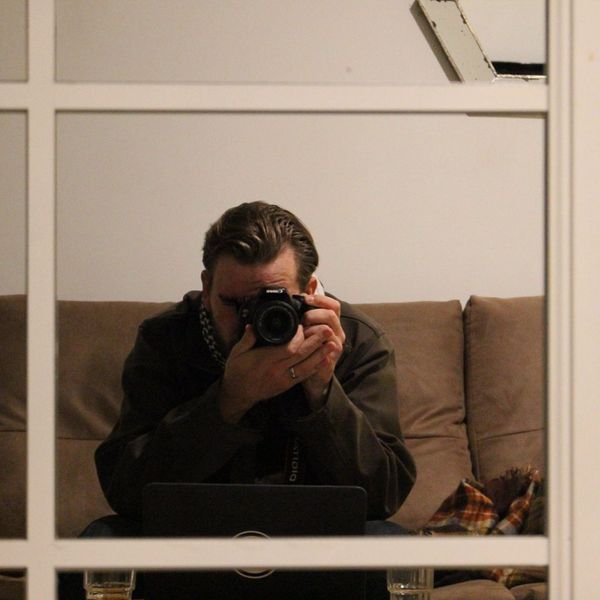
Brian Krans
Brian Krans is a reporter in the East Bay who covers public health, from cops to COVID. He has written for the Oaklandside, Healthline, California Healthline and the Appeal.
follow me :



